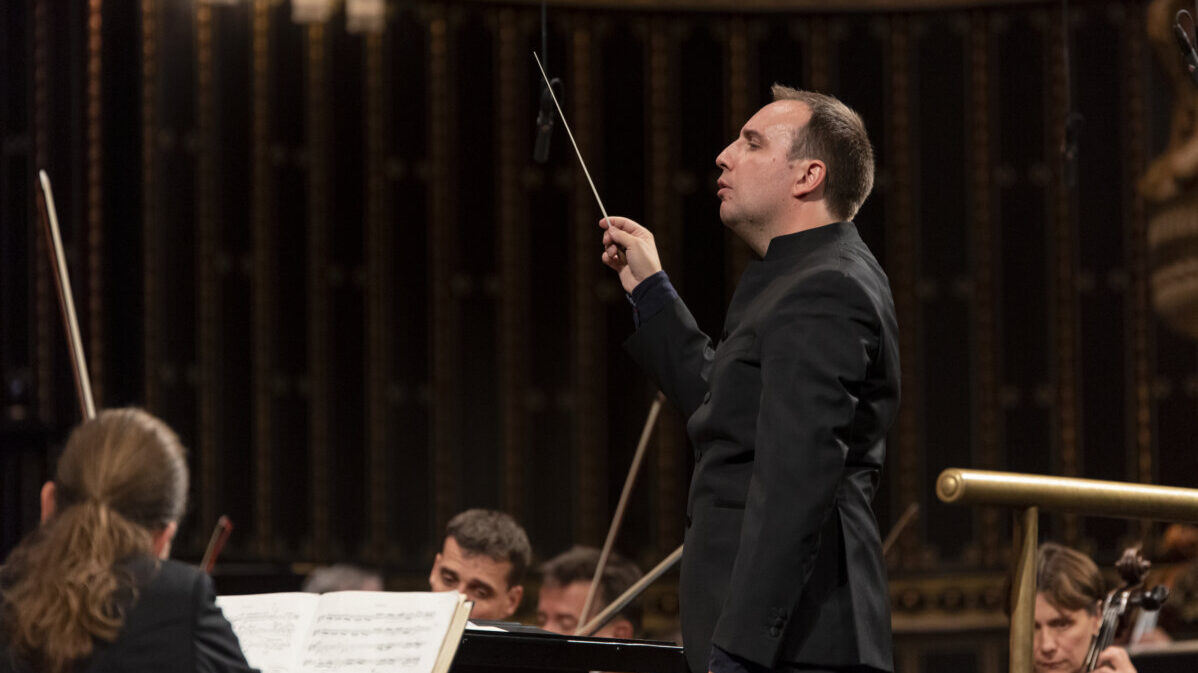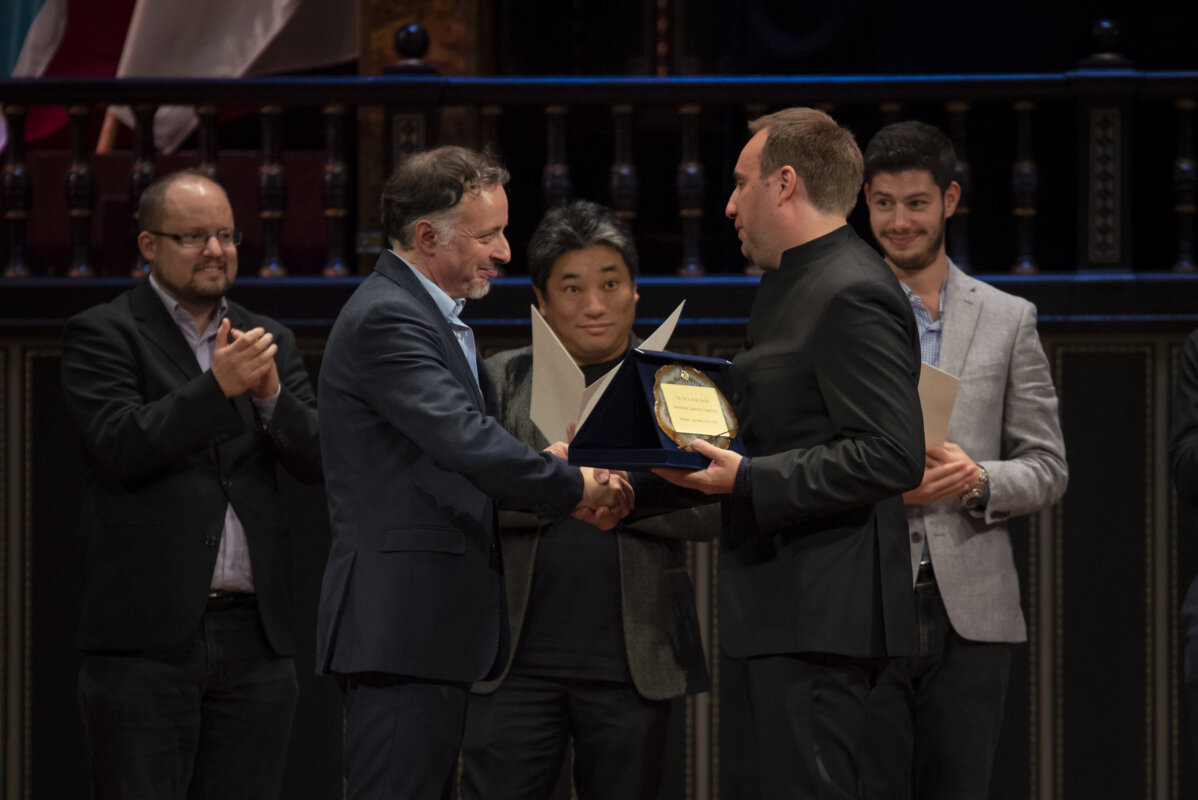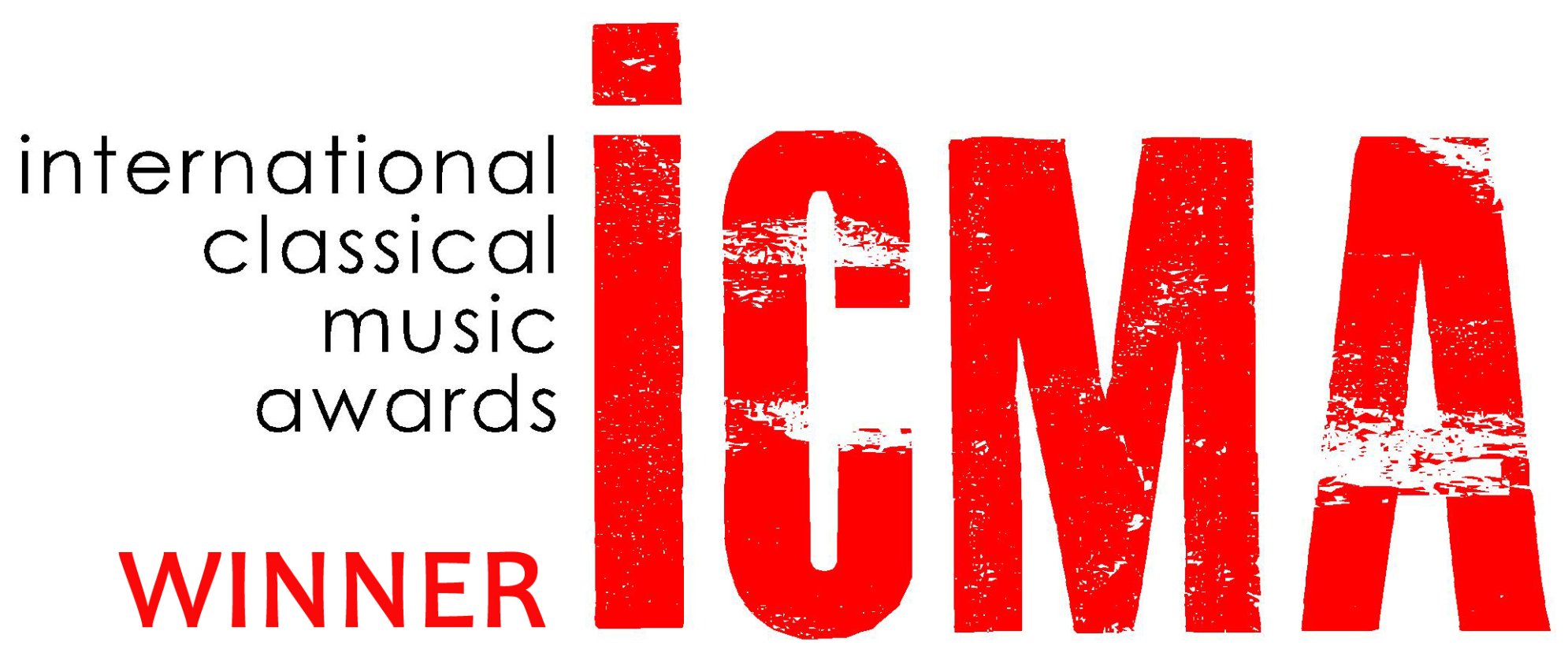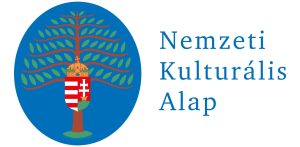
The legacy of Antal Doráti’s remarkable conducting career was invoked on the evening of the 11th of September, as the conducting competition with his name on it began its Final round, culminating a 10-day elimination process that began with 200 applicants. That Saturday evening, two finalists, one from France and the other from Morocco, competed onstage at the Liszt Academy, conducting the MÁV Symphony Orchestra.
After a challenging program of scores by Doráti and Tchaikovski, Remi Durupt was chosen as the 1st place winner of a gold plate valued at 5,000 Euros, and five conducting engagements with global orchestras. Omar El Jamali was awarded 2nd place with a silver plate valued at 2,500 Euros, and two future orchestra engagements.
Durupt’s finely honed technique was evident in his approach to Doráti’s lyrical piece for string orchestra and oboe: “Notturno”: Andante (1926), followed by an electrified performance of two movements from Tchaikovski’s Symphony No. 5. Also a recognized percussionist, Durupt’s notably keen coordination of the rhythmic ethos of each piece was always steady, even in blizzard-level tempos.
El Jamali led the same Doráti score – a compulsory piece for each finalist – with delicacy, followed by an exuberant, if often sumptuous, execution of two movements from Tchaikovski’s Symphony No. 6.
Remarking on the unique personal and professional demands of such a competition, Gábor Takács-Nagy (member of the competition’s Board and Music Director of the Verbier Chamber Orchestra) greeted the audience via his introductory video and acknowledged that judging such “mysterious” musical activities “is indeed mysterious, but that’s life!”
During brief videos of the finalists shown to the audience, El Jamali’s attitude was more direct: “This is a test to see if you can project your musical ideas and pass the [ultimate] stress test!” He explained: “starting from 60 candidates, then 20, then to eight, and now two…” the test was indeed far beyond just the rigors of that evening, but included the previous elimination rounds coupled with constant studying and practicing.

Rémi Durupt
Durupt’s answer to the question of how winning 1st prize might affect his career eliminated any such mystery: “In my mind, I’ve already won.” His confident comportment suggested that kind of pressure was something he never ignored but had learned to work with – perhaps because his usual musical milieu is contemporary works and not the romantic styles of Tchaikowski and Dvorák, the required genre for this competition.
Both conductors demonstrated the mystery through the mastery of a million different split-second demands of each moment on the podium. And each had a radically different podium personality, too: Durupt a precision-master on a whirlwind of rhythmic roller-coasters, and El Jamali an embodiment of the composers’ most spiritual as well as kinetic intentions.
While the jury deliberated during the Saturday finale, two of Hungary’s beloved musicians, the Jávorkai Brothers (cellist Ádám and violinist Sándor), gave robust renditions of several virtuoso pieces, starting with Zoltán Kodály’s “Duo for Violin and Cello” and Bartók’s “Romanian Dances” and ending with Aram Khachaturian’s “Sabre Dance.”
After the two headline prizes were presented, the Papageno Special Prize for the best Hungarian competitor, went to András Derecskei.
The six other semi-finalists (Sebastian Zinca/Romania, Giuseppe Mengoli/Italy, Masane Ota/Japan, and Christopher Schumann, Simon Edelmann, and Gerald Karni from Germany) were also called to the stage to accept silver medals each worth 1,000 Euros and their Certificates of Participation.
The on-site Jury members for the Finals were Anna Duczmal Mroz (Amadeus Chamber Orchestra of Polish Radio), Myron Michailidis (Erfurt Philharmonic Orchestra and Opera), Gábor Fenyő (MÁV Symphony Orchestra), Vittorio Parisi (Verdi Conservatory, Milan), György Lendvai (MÁV Symphony Orchestra), and Andrea Vitello (I solisti del Teatro alla Scala di Milano, and Warner Artist).
Other judges for the prior elimination rounds were John Axelrod (Real Orquesta Sinfónica de Sevilla), Oleg Caetani (prize winner of RAI Milan and Karajan Competitions), and Sergey Smbatyan (Armenian State Symphony Orchestra).
All the competitors, as well as all other contributors, acknowledged the exemplary work of the MÁV Symphony Orchestra during the entire on-site elimination rounds and the final program. Throughout this demanding competition, this fine ensemble, founded in 1945, is still proving itself to be an enduring jewel in Budapest’s musical life.
The Antal Doráti Competition is made possible by an important group of associations: Artes Italia, the Istituto Italiano di Cultura Budapest, Coopera, BRAAAVI Performing Arts Group, Franz Liszt Academy of Music, the MÁV Symphony Orchestra, Papageno, and Classics Management. Martin Engström, who is the Founder and Director of the Verbier Festival and a former Executive Producer of Deutsche Grammophone Gesellschaft, is the President of the competition’s Board of Directors.
The future conducting engagement prizes for the two winners are provided by the Plock (PL) Symphony Orchestra, Armenian State Symphony Orchestra, Orchestre International de Genève, the Hungarian National Symphony Orchestra, and MÁV Symphony Orchestra.
The Antal Doráti Competition offers a prestigious career opportunity for emerging conductors, is open to musicians of any nationality, and is one of the very few global competitions without age limits. The 4th edition will occur in 2024.
Written by Alexandra Ivanoff






